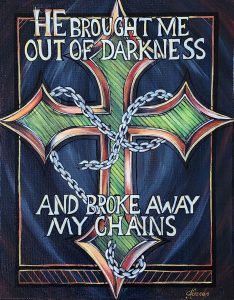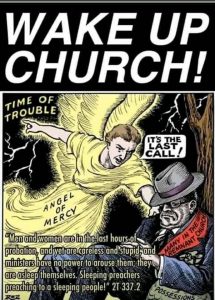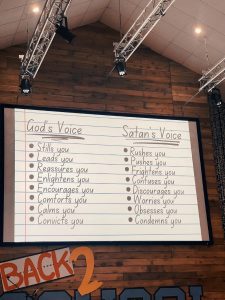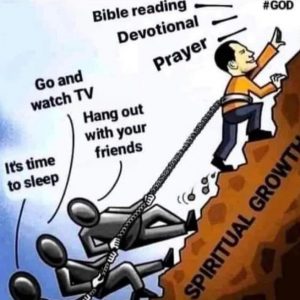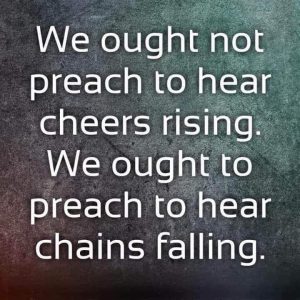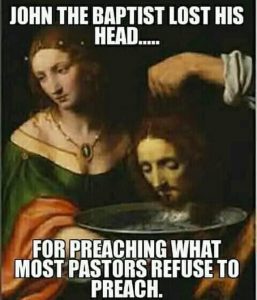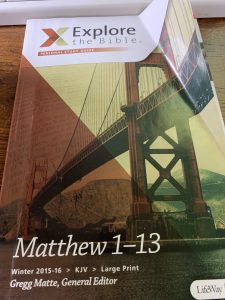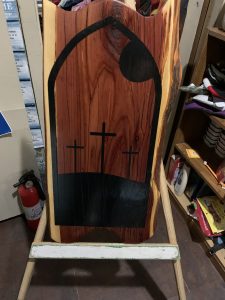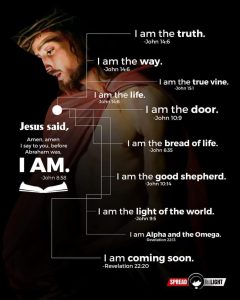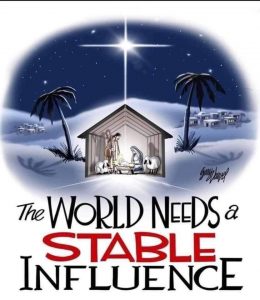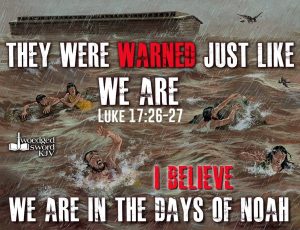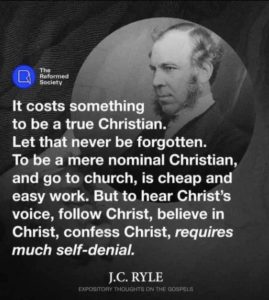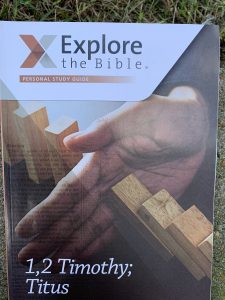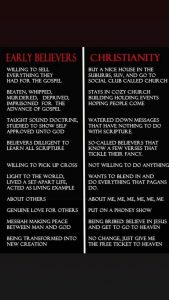Bible Studies
Bible Study In Matthew
26th Bible Study in Matthew
Bible Study Title: What Do We Do Now?
Key Bible Passage: Matthew 28:16-20
Take Home Message : Jesus expects His followers to seek to be disciple-makers of all people.
Bible Study Title: Crucified
Key Bible Passage: Matthew 27:41-52
The Overall Bible Study Theme: Jesus willingly sacrificed His life to pay the price for all of humanity’s sin

24th Bible Study in Matthew (1/22/23)
Bible Study Title: Loyal?
Key Bible Passage: Matthew 26:63-75
Overall Bible Theme: Following Jesus demands loyalty in the face of risk.
23th Bible Study in Matthew (1/14/23)
Bibe Study Title: Do I Have The Strength?
Key Bible Passage: Matthew 26:36-46
Overall Bible Theme: Jesus willingly submitted to the Father’s redemptive plan.
- Believers are to willingly accept God’s direction and will in their lives.
- Believers are to stay alert, depending upon the Father to help them remain faithful to their assigned task.
- Jesus came to earth for the sole purpose of laying down HIs life as a sacrifice.
22th Bible Study in Matthew
Bible Study Title: How Do We Remember?
Key Bible Passage: Matthew 26:17-30
Overall Bible Theme: Jesus’ sacrifice is to be reverently remembered through the observing of the Lord’s Supper.
21th Bible in Matthew
Bible Study Title: What About the Future?
Key Bible Passage: Matthew 24:36-51
Overall Bible Theme: Jesus will return at the end of time, so preparations must be made.
Bible Study Title: Where Is Jesus?
Key Bible Passage: Matthew 28:1-15
Overall Bible Theme: Jesus was resurrected to reign forever as the King.
Bible Study Title: Offered To All?
Key Bible Passage: Matthew 22:1-14
Overall Bible Theme: Though all are invited to join Jesus in God’s kingdom, only those who respond to Him in obedient faith will be accepted.
18th Bible Study in Matthew
Bible Study Title: If I Reject Jesus?
Key Bible Pasaage: Matthew 21:33-45
Overall Bible Theme : Jesus is central in God’s plan of redemption.
Bible Study Title: More Than A Prophet?
Key Bible Passage: Matthew 21:1-11
Overall Bible Theme: Jesus fulfilled the prophecies associated with Israel’s long-awaited King.
Bible Study Title: What Is Required ?
Key Bible Passage: Matthew 19:16-26
Overall Bible Theme: Jesus offers the gift of eternal life to those willing to follow Him.
Bible Study Title: Is Jesus Fully God?
Key Bible Passage: Matthew 17:1-13
Overall Bible Theme: As the Son, Jesus reveals God’s glory to humanity.
Bible Study Title: Who Is Jesus?
Key Bible Passage: Matthew 16:13-28
Overall Bible Theme: Jesus is the Christ to whom all of Scripture points.

Thirteen Bible Study in Matthew
Bible Study Title: Access Granted
Key Bible Passage: Matthew 13:1-13
Overall Bible Theme: Jesus reveals the secrets of His kingdom to His followers
Twelve Bible in Matthew
Bible Study Title: What’s The Sign?
Key Bible Passage: Matthew 12:38-42
Overall Bible Theme: The proof of His rule is found in Jesus’ death , burial, and resurrection.

Eleventh Bible Study in Matthew
Bible Study Title: Open Invitation
Key Bible Passage: Matthew 11:20-30
Overall Bible Theme: Jesus invites anyone willing to follow Him to join His kingdom.
Bible Study Title: In His Service
Key Bible Passage: Matthew 9:35-38; 10:1-8
Overall Bible Theme: Jesus invites His followers to be a part of His work.
Ninth Bible Study in Matthew
Bible Study Title: Faith Demonstrated
Key Bible Passage: Matthew 8:5-13
Overall Bible Theme: Jesus has authority over all His creation.
Eighth Bible Study in Matthew
Bible Study Title: Two Paths, One Choice
Key Bible Passage: Matthew 7:13-21,24-27
Overall Bible Study Theme: Every person faces an important choice regarding his or her eternal destiny.

Seventh Bible Study in Matthew (7/31/22)
Bible Study Title: Carrying His Values
Key Bible Passage: Matthew 5:17-22; 43-45
Overall Bible Theme: Jesus values all human life and expects His followers to do the same.

Sixth Bible in Matthew (7/23/22)
Bible Study Title: Approaching The King
Key Bible Passage: Matthew 6:5-18
Overall Bible Theme: Jesus taught His followers how to approach the Father through prayer.
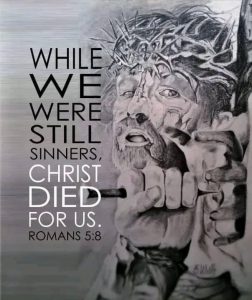
Fifth Bible Lesson in Matthew (7/16/22)
Bible Study Title: The King’s Expectations
Bible Study Passage: Matthew 5:1-16
Overall Bible Study Theme: The blessings of the King are on His followers who exhibit His character.
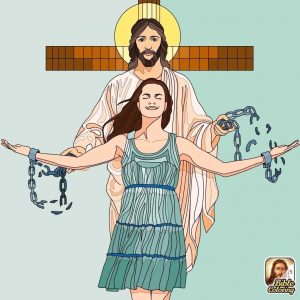
Fourth Bible Lesson in Matthew (7/9/22)
Bible Study Title: The King Tempted
Overall Bible Theme: Jesus faced temptations and yet never sinned.
Key Bible Passage: Matthew 4:1-10

Third Bible Lesson in Matthew (7/1/22)
Bible Study Title: The Way Prepared
Overall Bible Theme: Jesus came to earth as the promised King who provides salvation for those who trust Him.
Key Bible Passage: Matthew 3:1-12

Second Bible Lesson in Matthew (6/25/22)
Bible Study Title: The King Worshiped
Overall Bible Theme: Jesus is worthy of worship.
Key Bible Passage: Matthew 2:1-12

Introduction to Matthew and First Lesson (6/18/22)
Bible Study Title: The King Arrives
Key Bible Study: Matthew 1:18-25
Bible Study Title: Live Out The Faith (5/21/22)
Overall Theme: Believers are to live to a higher standard.
Key Bible Passage : Hebrews 13:1-8

Bible Study Title: A New Kind Of Community (5/13/22)
Overall Theme: Believers can have a joyful fellowship with one another and with God because of the blood of Jesus Christ
Key Bible Passage: Hebrews 12:18-24

Bible Study Title: The Displine of Suffering (5/7/22)
Overall Theme: Christ’s perfect sacrifice calls for His followers To remain faithful regardless.
Key Bible Passage: Hebrews 12:1-7
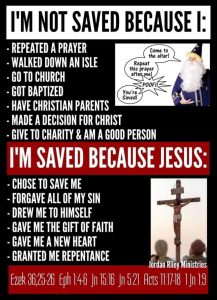
Bible Study Title: Faith Defined (4/30/22)
Overall Theme: A relationship with God begins with faith in Jesus.
Key Bible Passage: Hebrews 11:1-7
Bible Study Title: The Perfect Offering (4/23/2022)
Overall Theme: Christ’s atoning sacrifice established a new convenant of eternal redemption
Key Bible Passage: Hebrews 9:11-15
Bible Study Title: Only Jesus Transforms (4/16/22)
Overall Theme: Jesus established a new covenant based upon God’s good promises
Key Bible Passage: Hebrews 8:1-13
Bible Study Title: Only Jesus Saves (4/9/22)
Overall Bible Study Theme: Jesus is the only One able to save us
Key Bible Passage: Hebrews 7:23-28
Bible Study Title: Don’t Walk Away (4/2/22)
Overall Bible Study Theme: Rejecting Christ leads to hopelessness
Key Bible Passage: Hebrews 6:1-8
Bible Study Title: Secured With Confidence (3/26/22)
Overall Bible Theme: Through His sacrifice, We Have a True Great High Priest
Key Bible Passage: Hebrews 4:14-5:6
Bible Study Title: WatchOut! (3/19/2022)
Overall Bible Theme: Believers must encourage each other to firmly hold to Jesus.
Key Bible Passage: Hebrew 3:7-15
Bible Study Title: Why One Of Us (3/11/2022)
Overall Bible Theme: God’s Son took on human nature to free us from sin and death.
key Bible Passage: Hebrews 2:14-18
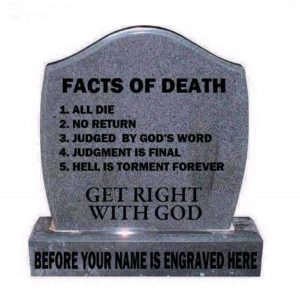
Bible Study Title: Pay Attention (3/5/22)
Overall Theme: Believers must diligent guard against drifting away from their confession of Jesus.
Key Bible Passage: Hebrew 2:1-4

Bible Study Title: Who Is Jesus (2/26/22)
Key Bible Passage: Hebrew 1:1-4
Overall Theme: As God’s Son, Jesus revealed God finally and without equal.
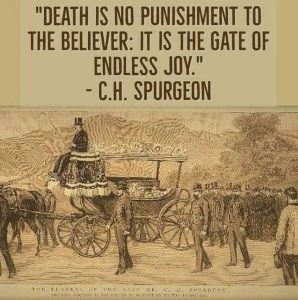
Bible Study in I and II Timothy and Titus
Bible Study Title: Living To Do (2/12/22)
Key Bible Passage: Titus 3:1-11
Overall Theme: Believers should look for opportunities to do good works as acts of worship.
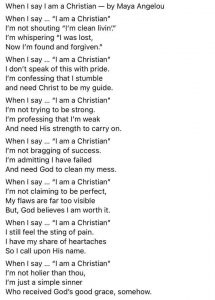
Bible Study Title: Living With Integrity (2/4/22)
Key Bible Passage: Titus 2:1-15
Overall Theme: Believers are to live so that they bring honor to Jesus.
Bible Study Title: Living With Opposition (1/29/22)
Key Bible Passages: Titus 1:1-5; 10-16
Overall Theme: Believers are accountable for rejecting false teachers and teachings.

Bible Study Title: Enduring (1/22/22)
Key Bible Passages: 2 Timothy 3:12-17; 4:1-8
Overall Theme: Believers must remain faithful to God’s truth even when facing persecution
Bible Study Title: Diligent (1/15/22)
Key Bible Passage: 2 Timothy 2:14-26
Overall Theme: Believers find truth and direction by studying God’s Word.
2 Timothy 2:14-26
14. Of these things put them in remembrance, charging them before the Lord that they strive not about words to no profit, but to the subverting of the hearers. 15. Study to shew thyself approved unto God, a workman that needeth not to be ashamed, rightly dividing the word of truth. 16. But shun profane and vain babblings: for they will increase unto more ungodliness. 17. And their word will eat as doth a canker: of whom is Hymenaeus and Philetus; 18. Who concerning the truth have erred, saying that the resurrection is past already; and overthrow the faith of some. 19.Nevertheless the foundation of God standeth sure, having this seal, The Lord knoweth them that are his. And, let every one that nameth the name of Christ depart from iniquity. 20. But in a great house there are not only vessels of gold and of silver, but also of wood and of earth; and some to honour, and some to dishonour. 21. If a man therefore purge himself from these, he shall be a vessel unto honour, sanctified, and meet for the master’s use, and prepared unto every good work. 22. Flee also youthful lusts: but follow righteousness, faith, charity, peace, with them that call on the Lord out of a pure heart. 23. But foolish and unlearned questions avoid, knowing that they do gender strifes. 24. And the servant of the Lord must not strive; but be gentle unto all men, apt to teach, patient, 25. In meekness instructing those that oppose themselves; if God peradventure will give them repentance to the acknowledging of the truth; 26. And that they may recover themselves out of the snare of the devil, who are taken captive by him at his will.
Bible Study Title: Focused (1/8/22) Saturday
Key Bible Passage: 2 Timothy 2:1-13
Overall Theme: Believers can find strength for life’s hardships by focusing on God’s grace and the gospel.
II Timothy 2:1-13
1. Thou therefore, my son, be strong in the grace that is in Christ Jesus. 2. And the things that thou hast heard of me among many witnesses, the same commit thou to faithful men, who shall be able to teach others also. 3. Thou therefore endure hardness, as a good soldier of Jesus Christ. 4.No man that warreth entangleth himself with the affairs of this life; that he may please him who hath chosen him to be a soldier. 5. And if a man also strive for masteries, yet is he not crowned, except he strive lawfully. 6. The husbandman that laboureth must be first partaker of the fruits. 7. Consider what I say; and the Lord give thee understanding in all things. 8. Remember that Jesus Christ of the seed of David was raised from the dead according to my gospel: 9. Wherein I suffer trouble, as an evil doer, even unto bonds; but the word of God is not bound. 10. Therefore I endure all things for the elect’s sakes, that they may also obtain the salvation which is in Christ Jesus with eternal glory. 11. It is a faithful saying: For if we be dead with him, we shall also live with him: 12. If we suffer, we shall also reign with him: if we deny him, he also will deny us: 13. If we believe not, yet he abideth faithful: he cannot deny himself.
Question # 1 : What factors contribute to a hardship sharpening or souring a person’s view of life?
I. Future Focused (2 Tim. 2:1-2)
1. Thou therefore, my son, be strong in the grace that is in Christ Jesus. 2. And the things that thou hast heard of me among many witnesses, the same commit thou to faithful men, who shall be able to teach others also.
Question #2: Why was it so important for Timothy to prepare another generation to lead?
Question #3: How is this strategy used today?
II. Mission Focused ( 2 Tim. 2:3-7)
3. Thou therefore endure hardness, as a good soldier of Jesus Christ. 4.No man that warreth entangleth himself with the affairs of this life; that he may please him who hath chosen him to be a soldier. 5. And if a man also strive for masteries, yet is he not crowned, except he strive lawfully. 6. The husbandman that laboureth must be first partaker of the fruits. 7. Consider what I say; and the Lord give thee understanding in all things.
Question #4: In what ways are the disciplines required to be a soldier and athlete similar?
Question # 5: How are they different?
Question# 6: How does the discipline of being a believer compare?
III. Christ Focused (2 Tim. 2:8-13)
8. Remember that Jesus Christ of the seed of David was raised from the dead according to my gospel: 9. Wherein I suffer trouble, as an evil doer, even unto bonds; but the word of God is not bound. 10. Therefore I endure all things for the elect’s sakes, that they may also obtain the salvation which is in Christ Jesus with eternal glory. 11. It is a faithful saying: For if we be dead with him, we shall also live with him: 12. If we suffer, we shall also reign with him: if we deny him, he also will deny us: 13. If we believe not, yet he abideth faithful: he cannot deny himself.
Question # 7: How does focusing on Christ’s faithfulness to us help us persevere in faithfulness to Him?
Take Home Messages:
1. Believers are to invest in the lives of future church leaders.
2. Believers must remain focused on the gospel when facing hardships, knowing God will reward their faithfulness.
3. Believers can take strength in knowing that their faithful witness opens doors for the gospel to be heard and believed.
End of Bible Study Questions and Statements:
1. In whom are we investing as a future Christian leader? How are we doing so?
2. Let’s ponder as brothers and sisters in the Lord in how we can minister to people facing a crisis of faith in our community. How we can encourage them?
3. Identify the challenges we currently face. How can we use each challenge as a vehicle for sharing the gospel with others?
Bible Study Title: Confidence (1/1/2022) Saturday
Key Bible Passage: 2 Timothy 1:3-14
Overall Theme: Believers can have confidence in Christ in all circumstances.
I Timothy 1:3-14
3. I thank God, whom I serve from my forefathers with pure conscience, that without ceasing I have remembrance of thee in my prayers night and day; 4. Greatly desiring to see thee, being mindful of thy tears, that I may be filled with joy; 5. When I call to remembrance the unfeigned faith that is in thee, which dwelt first in thy grandmother Lois, and thy mother Eunice; and I am persuaded that in thee also. 6. Wherefore I put thee in remembrance that thou stir up the gift of God, which is in thee by the putting on of my hands. 7. For God hath not given us the spirit of fear; but of power, and of love, and of a sound mind. 8. Be not thou therefore ashamed of the testimony of our Lord, nor of me his prisoner: but be thou partaker of the afflictions of the gospel according to the power of God; 9. Who hath saved us, and called us with an holy calling, not according to our works, but according to his own purpose and grace, which was given us in Christ Jesus before the world began, 10. But is now made manifest by the appearing of our Saviour Jesus Christ, who hath abolished death, and hath brought life and immortality to light through the gospel: 11. Whereunto I am appointed a preacher, and an apostle, and a teacher of the Gentiles 12. For the which cause I also suffer these things: nevertheless I am not ashamed: for I know whom I have believed, and am persuaded that he is able to keep that which I have committed unto him against that day. 13. Hold fast the form of sound words, which thou hast heard of me, in faith and love which is in Christ Jesus. 14. That good thing which was committed unto thee keep by the Holy Ghost which dwelleth in us.
Question 1: Does our culture over emphasize self-reliance? Explain.
Question 2: How does our culture foster or impede trusting in God as opposed to ourselves?
I. Heritage (2 Timothy 1:3-5)
3. I thank God, whom I serve from my forefathers with pure conscience, that without ceasing I have remembrance of thee in my prayers night and day; 4. Greatly desiring to see thee, being mindful of thy tears, that I may be filled with joy; 5. When I call to remembrance the unfeigned faith that is in thee, which dwelt first in thy grandmother Lois, and thy mother Eunice; and I am persuaded that in thee also.
Question 3: How is a person’s spiritual growth impacted by the lives of others?
II. Gifted (2 Timohty 1:6-7)
6. Wherefore I put thee in remembrance that thou stir up the gift of God, which is in thee by the putting on of my hands. 7. For God hath not given us the spirit of fear; but of power, and of love, and of a sound mind.
Question 4: What are the dangers of relying on our own strength and abilities to complete a God-given task?
Question 5: How can one tell the difference?
III. Unashamed (2 Timohty 1:8-12)
8. Be not thou therefore ashamed of the testimony of our Lord, nor of me his prisoner: but be thou partaker of the afflictions of the gospel according to the power of God; 9. Who hath saved us, and called us with an holy calling, not according to our works, but according to his own purpose and grace, which was given us in Christ Jesus before the world began, 10. But is now made manifest by the appearing of our Saviour Jesus Christ, who hath abolished death, and hath brought life and immortality to light through the gospel: 11. Whereunto I am appointed a preacher, and an apostle, and a teacher of the Gentiles 12. For the which cause I also suffer these things: nevertheless I am not ashamed: for I know whom I have believed, and am persuaded that he is able to keep that which I have committed unto him against that day.
Question 6: What is the relationship between confidence in the gospel and one’s willingness to share the gospel?
Question 7: How does the truth of the gospel instill confidence in the believer?
IV. Loyal (2 Timothy 1:13-14)
13. Hold fast the form of sound words, which thou hast heard of me, in faith and love which is in Christ Jesus. 14. That good thing which was committed unto thee keep by the Holy Ghost which dwelleth in us.
Question 8: Why is it so important for believers to remain faithful in sharing the gospel?
Question 9: What things get in the way of believers freely sharing the gospel with e gospel with others?
Take Home Messages:
1. Believers can find strength from those who invest in them spiritually.
2. Believers can act boldly with the power of the Holy Spirit working through them.
3. Believers can live with confidence knowing that Christ demonstrated His power through the resurrection.
4. Believers are charged with delivering the gospel to the next generation.
End of Bible Study Question and Statements:
1. List the names of people who have invested in your spiritual development. What truths have you learned from them? How are you passing those lessons on to others?
2. Reflect on ways the Holy Spirit encourages you and how to encourages others around you with this ?
3. Focus on 2 Timohty 1:12. What actions do you need to take so that you can personally seek God with this so the scripture burst alive in your lifeand those around you?
Bible Study Title: Lasting Investments (12/18/2021) Saturday
Key Bible Passage: I Timothy 6:6-19
Overall Theme: Believers should be motivated by value of living a godly life as opposed to material gain.
I Timothy 6:6-19
6. But godliness with contentment is great gain. 7. For we brought nothing into this world, and it is certain we can carry nothing out. 8. And having food and raiment let us be therewith content. 9. But they that will be rich fall into temptation and a snare, and into many foolish and hurtful lusts, which drown men in destruction and perdition. 10. For the love of money is the root of all evil: which while some coveted after, they have erred from the faith, and pierced themselves through with many sorrows. 11. But thou, O man of God, flee these things; and follow after righteousness, godliness, faith, love, patience, meekness. 12. Fight the good fight of faith, lay hold on eternal life, whereunto thou art also called, and hast professed a good profession before many witnesses. 13. I give thee charge in the sight of God, who quickeneth all things, and before Christ Jesus, who before Pontius Pilate witnessed a good confession; 14. That thou keep this commandment without spot, unrebukable, until the appearing of our Lord Jesus Christ: 15. Which in his times he shall shew, who is the blessed and only Potentate, the King of kings, and Lord of lords; 16. Who only hath immortality, dwelling in the light which no man can approach unto; whom no man hath seen, nor can see: to whom be honour and power everlasting. Amen. 17. Charge them that are rich in this world, that they be not highminded, nor trust in uncertain riches, but in the living God, who giveth us richly all things to enjoy; 18. That they do good, that they be rich in good works, ready to distribute, willing to communicate; 19. Laying up in store for themselves a good foundation against the time to come, that they may lay hold on eternal life.
Question 1: What was your first job?
Question 2: What did you like most about it?
Question 3: Would you want to do taht kind of work again? Explain.
I. True Contentment (1 Tim. 6:6-10)
6. But godliness with contentment is great gain. 7. For we brought nothing into this world, and it is certain we can carry nothing out. 8. And having food and raiment let us be therewith content. 9. But they that will be rich fall into temptation and a snare, and into many foolish and hurtful lusts, which drown men in destruction and perdition. 10. For the love of money is the root of all evil: which while some coveted after, they have erred from the faith, and pierced themselves through with many sorrows.
Question 4: What does it mean mean to base your contentment on Christ?
II. True Riches (I Tim. 6:11-16)
11. But thou, O man of God, flee these things; and follow after righteousness, godliness, faith, love, patience, meekness. 12. Fight the good fight of faith, lay hold on eternal life, whereunto thou art also called, and hast professed a good profession before many witnesses. 13. I give thee charge in the sight of God, who quickeneth all things, and before Christ Jesus, who before Pontius Pilate witnessed a good confession; 14.That thou keep this commandment without spot, unrebukable, until the appearing of our Lord Jesus Christ: 15. Which in his times he shall shew, who is the blessed and only Potentate, the King of kings, and Lord of lords; 16. Who only hath immortality, dwelling in the light which no man can approach unto; whom no man hath seen, nor can see: to whom be honour and power everlasting. Amen.
Question 5: How does focusing on Jesus and HIs character help a believer fulfill God’s purpose?
III. Stewards of Good Works (I Tim. 6:17-19)
17. Charge them that are rich in this world, that they be not highminded, nor trust in uncertain riches, but in the living God, who giveth us richly all things to enjoy; 18. That they do good, that they be rich in good works, ready to distribute, willing to communicate; 19. Laying up in store for themselves a good foundation against the time to come, that they may lay hold on eternal life.
Question 6: In what ways can a person leverage his or her financial resources to spread the gospel and strengthen the church?
Take Home Messages:
1. Believers find purpose and contentment by pursing godliness.
2. Believers are to live in light of the promise of eternal life.
3. Believers are to use what they have to bless others.
End of Bible Study Questions and Statements:
1. Reflect on I Timothy 6:10. Ask God to show you any areas in your life where your love is misguided.
2. What changes can you make to honor Christ so that your earthly resources enhance kingdom opportunities locally and gobally?
Bible Study Title: Being Responsible (12/11/21) Saturday
Key Bible Passage: I Timothy 5:1-8, 17-21
Overall Theme: Believers should care for others, including widows and ministers.
I Timothy 5:1-8
1.Rebuke not an elder, but intreat him as a father; and the younger men as brethren; 2. The elder women as mothers; the younger as sisters, with all purity. 3. Honour widows that are widows indeed. 4. But if any widow have children or nephews, let them learn first to shew piety at home, and to requite their parents: for that is good and acceptable before God. 5. Now she that is a widow indeed, and desolate, trusteth in God, and continueth in supplications and prayers night and day. 6. But she that liveth in pleasure is dead while she liveth. 7. And these things give in charge, that they may be blameless. 8. But if any provide not for his own, and specially for those of his own house, he hath denied the faith, and is worse than an infidel.
I Timothy 5:17-21
17. Let the elders that rule well be counted worthy of double honour, especially they who labour in the word and doctrine. 18. For the scripture saith, thou shalt not muzzle the ox that treadeth out the corn. And, The labourer is worthy of his reward. 19. Against an elder receive not an accusation, but before two or three witnesses 20. Them that sin rebuke before all, that others also may fear. 21. I charge thee before God, and the Lord Jesus Christ, and the elect angels, that thou observe these things without preferring one before another, doing nothing by partiality.
Question #1: What role should the church play in caring for the needs of people in the community?
Question #2: As we read I Timothy 5:1-8, 17-21, look for reasons behind Paul’s instructions. How does knowing whey we do something help us complete the task?
I. Respect All (1 Tim. 5:1-2)
1.Rebuke not an elder, but intreat him as a father; and the younger men as brethren; 2. The elder women as mothers; the younger as sisters, with all purity.
Question # 3: How does the way we approach a person impact his or her willingness to listen?
Question #4: How can a person balance sternness and love?
II. Care For Widows (I Tim. 5:3-8)
3. Honour widows that are widows indeed. 4. But if any widow have children or nephews, let them learn first to shew piety at home, and to requite their parents: for that is good and acceptable before God. 5. Now she that is a widow indeed, and desolate, trusteth in God, and continueth in supplications and prayers night and day. 6. But she that liveth in pleasure is dead while she liveth. 7. And these things give in charge, that they may be blameless. 8. But if any provide not for his own, and specially for those of his own house, he hath denied the faith, and is worse than an infidel.
Question #5: How does the care of widows within a church serve as a testimony for Christ in the larger community?
Question #6: Where is the line between family expectations and church responsibility?
Question #7: How can they partner in a way that is fair to both?
III. Care For Pastors (I Tim 5:17-21)
17. Let the elders that rule well be counted worthy of double honour, especially they who labour in the word and doctrine. 18. For the scripture saith, thou shalt not muzzle the ox that treadeth out the corn. And, The labourer is worthy of his reward. 19. Against an elder receive not an accusation, but before two or three witnesses 20. Them that sin rebuke before all, that others also may fear. 21. I charge thee before God, and the Lord Jesus Christ, and the elect angels, that thou observe these things without preferring one before another, doing nothing by partiality.
Question #8: Do we believe it is more difficult or easier to lead a church today than it was thirty years ago? Give examples to illustrate our response.
Question #9: What factors may make a pastor or church leader an easy target for a false accusation?
Question #10: How can a church practice the actions called for by Paul?
Take Home Messages:
1.Believers are to treat each other as respected family members.
2.Believers are to help take care of the needs of faithful believers who face life alone.
3. Believers are responsible to God for the support they provide their pastoral leadership.
End of Bible Questions and Statements:
1. Reflect on the responsibilities we have for others as a member of a family and of a church. What actions do we need to take to better care for the people in our family and in the church who are unable to care for themselves?
2.Memorize 1 Timothy 5:25. Consider ways we can express gratitude and generosity to our pastoral leaders. What actions do we need to take to encourage our pastor and church leaders?
Bible Study Title: Staying on Course (12/4/21) Saturday
Key Bible Passage: I Timothy 4:1-13
Overall theme: Believers must be nourished on God’s Word so they will know the truth.
I Timothy 4:1-13
1. Now the Spirit speaketh expressly, that in the latter times some shall depart from the faith, giving heed to seducing spirits, and doctrines of devils; 2. Speaking lies in hypocrisy; having their conscience seared with a hot iron; 3.Forbidding to marry, and commanding to abstain from meats, which God hath created to be received with thanksgiving of them which believe and know the truth. 4. For every creature of God is good, and nothing to be refused, if it be received with thanksgiving: 5. For it is sanctified by the word of God and prayer. 6. If thou put the brethren in remembrance of these things, thou shalt be a good minister of Jesus Christ, nourished up in the words of faith and of good doctrine, whereunto thou hast attained. 7. But refuse profane and old wives’ fables, and exercise thyself rather unto godliness. 8. For bodily exercise profiteth little: but godliness is profitable unto all things, having promise of the life that now is, and of that which is to come. 9. This is a faithful saying and worthy of all acceptation. 10. For therefore we both labour and suffer reproach, because we trust in the living God, who is the Saviour of all men, specially of those that believe. 11. These things command and teach. 12. Let no man despise thy youth; but be thou an example of the believers, in word, in conversation, in charity, in spirit, in faith, in purity. 13. Till I come, give attendance to reading, to exhortation, to doctrine.
Question 1: Have you ever been the victim of a scam or false advertisement?
Question 2: How did you respond in the future to other “can’t miss” opportunities ?
I. Be Aware (I Timothy 4:1-5)
1. Now the Spirit speaketh expressly, that in the latter times some shall depart from the faith, giving heed to seducing spirits, and doctrines of devils; 2. Speaking lies in hypocrisy; having their conscience seared with a hot iron; 3.Forbidding to marry, and commanding to abstain from meats, which God hath created to be received with thanksgiving of them which believe and know the truth. 4. For every creature of God is good, and nothing to be refused, if it be received with thanksgiving: 5. For it is sanctified by the word of God and prayer.
Question 2: How does sin desensitize a person to truth?
Question 4: What other factors might desensitize a person to truth?
II. Disciplined (I Timothy 4:6-10)
6. If thou put the brethren in remembrance of these things, thou shalt be a good minister of Jesus Christ, nourished up in the words of faith and of good doctrine, whereunto thou hast attained. 7. But refuse profane and old wives’ fables, and exercise thyself rather unto godliness. 8. For bodily exercise profiteth little: but godliness is profitable unto all things, having promise of the life that now is, and of that which is to come. 9. This is a faithful saying and worthy of all acceptation. 10. For therefore we both labour and suffer reproach, because we trust in the living God, who is the Saviour of all men, specially of those that believe.
Question 5: What makes godliness a difficult discipline?
Question 6: How does the commitment to discipline yourself in godliness fit into your priorities?
III. Be An Example (I Timothy 4:11-13)
11. These things command and teach. 12. Let no man despise thy youth; but be thou an example of the believers, in word, in conversation, in charity, in spirit, in faith, in purity. 13. Till I come, give attendance to reading, to exhortation, to doctrine.
Question 7: In what ways could be an example for believers, beginning in your home?
Take Home Message:
1.Believers must be aware that false teaches will try to lead them astray.
2.Believers must be disciplined in their lives, seeking to honor God through living out the gospel.
3.Believers must remain focused on God’s Word to be an example of godly living.
End of Bible Study Questions and Statements:
1.How can your vigilance be strengthened as you learn about false teaching and heresy?
2. Think about ways of you can engage other about false doctrines and point other to solid and true Biblical doctrines.
3. Reflect on 1 Timothy 4:13. List one action you can take for each of the three areas Timothy was told to focus on.
Bible Study Title: Setting The Example (11/27/21) Saturday
Key Bible Passage: I Timothy 3:1-13
Overall Theme: Godly leaders are needed to lead healthy churches.
I Timothy 3:1-13
1.This is a true saying, if a man desire the office of a bishop, he desireth a good work. 2. A bishop then must be blameless, the husband of one wife, vigilant, sober, of good behaviour, given to hospitality, apt to teach; 3. Not given to wine, no striker, not greedy of filthy lucre; but patient, not a brawler, not covetous; 4. One that ruleth well his own house, having his children in subjection with all gravity; 5. (For if a man know not how to rule his own house, how shall he take care of the church of God?) 6. Not a novice, lest being lifted up with pride he fall into the condemnation of the devil. 7. Moreover he must have a good report of them which are without; lest he fall into reproach and the snare of the devil. 8.Likewise must the deacons be grave, not doubletongued, not given to much wine, not greedy of filthy lucre; 9. Holding the mystery of the faith in a pure conscience. 10. And let these also first be proved; then let them use the office of a deacon, being found blameless. 11.Even so must their wives be grave, not slanderers, sober, faithful in all things.12. Let the deacons be the husbands of one wife, ruling their children and their own houses well. 13. For they that have used the office of a deacon well purchase to themselves a good degree, and great boldness in the faith which is in Christ Jesus.
Question 1: What requirements do you value the most when it comes to church leaders? Why do you include each requirement?
Question 2: As we read I Timothy 3:1-13, compare and contrast the list of qualifications for a pastor and a deacon. What do the similar qualifications reveal about the expectations for all believers?
I. A Pastor’s Heart (1 Tim. 3:1)
1.This is a true saying, if a man desire the office of a bishop, he desireth a good work.
Question 3: How was Paul’s affirmation of those desiring to be a pastor also an affirmation of Timothy?
Question 4: Why is it important for every believer to seriously consider the role God wants him or her to play in His work?
II. A Pastor’s Character (I Tim. 3:2-7)
3. Not given to wine, no striker, not greedy of filthy lucre; but patient, not a brawler, not covetous; 4. One that ruleth well his own house, having his children in subjection with all gravity; 5. (For if a man know not how to rule his own house, how shall he take care of the church of God?) 6. Not a novice, lest being lifted up with pride he fall into the condemnation of the devil. 7. Moreover he must have a good report of them which are without; lest he fall into reproach and the snare of the devil.
Question 5: What dangers do churches face when they compromise these biblical qualifications for leaders?
III.A Deacon’s Character (I Tim. 3:8-13)
8.Likewise must the deacons be grave, not doubletongued, not given to much wine, not greedy of filthy lucre; 9. Holding the mystery of the faith in a pure conscience. 10. And let these also first be proved; then let them use the office of a deacon, being found blameless. 11.Even so must their wives be grave, not slanderers, sober, faithful in all things.12. Let the deacons be the husbands of one wife, ruling their children and their own houses well. 13. For they that have used the office of a deacon well purchase to themselves a good degree, and great boldness in the faith which is in Christ Jesus.
Question 6: How does faithful service honor God?
Question 7: How might memorizing I Timothy 3:13 be a way for al believers to remember the importance of service?
Take Home Message of this Bible Study:
1. Believers must consider what role God desires them to play in their local church.
2. Believers can affirm men who demonstrate the qualities of a faithful pastor,
3.Believers should seek to live a life that honors God through service.
End of Bible Study Questions and Actions:
1. Spend time praying about the role you play in your church. Ask God to help you faithfully serve in that role.
2. Are there other roles He may be asking you to consider?
3. What keeps you from taking on that additional roles.
4.Explore ways you can encourage your pastor and his family.
5.List ways you honor the Lord both in your church and outside of it.
6.What actions will you take this week to honor Him in your church?
7. List actions you will take to honor Him outside the church.

Bible Study Title: Mission Part
Overall Bible Theme: Believers are to be mindful of how they represent God in this world.
Bible Study Part 3 on I Timothy 2:1-12 (11/20/21) Saturday
Key Bible Passage: I Timothy 2:14-15
Bible Study Part 2 on 1 Tim 2:1-12 (11/13/2021)
Key Bible Passage: 1 Tim 2:11-12
Key Bible Passage: I Timothy 2:1-10 part 1 (11/6/21)
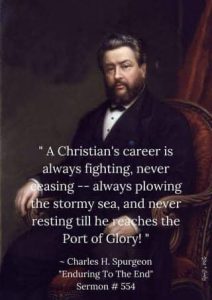
Introduction To First and Second Timothy and Titus
Background
Paul’s letters to Timothy and Titus resound with passion for the gospel, priorities for church leadership, prescriptions against false teaching, and practical guidelines for godly living. The apostle became acquainted with Timothy and Titus during the first and second missionary journeys. He referred to both as sons in the faith (1 Timothy 1:2; Titus 1:4). Paul’s affection and confidence in them was demonstrated by the responsibilities he gave them. Timothy was assigned leadership for churches in Thessalonica (1 Thess. 3:2), Corinth (Acts18:5), and Macedonia (Acts 19;22). Titus was utilized as a troubleshooter to resolve difficulties and strengthen churches in Corinth (2 Cor. 8:6, 18) , Dalmatia (2 Tim. 4:10), and Crete (Titus 1:5). Timothy’s primary area of ministry was Ephesus, while Titus’s primary ministry occurred in Crete.
Date
Most likely Paul wrote First Timothy during his ministry in the region of Macedonia (1Tim. 1:3), as Timothy ministered in Ephesus, probably around AD 63. This date falls between two imprisonments in Rome. Paul probably wrote his letter to Titus around Ad 63-64 from Nicopolis, when he left Titus in Crete. Second Timothy states that Paul was in prison and was in prison and was prepared for execution (2 Tim. 4:6-8). In AD 64, the great fire of Rome occurred and Nero found an opportunity to falsely blame the Christ-followers in and around the city. Paul wrote Second Timothy perhaps around AD 66, shortly before his execution.
Purpose
There was a three-fold purpose in Paul’s message to Timothy and Titus.
- He instructed and advised them to refute the false teaching that threatened the health and mission of the churches in Ephesus and Crete.
- He encouraged them to select godly leaders to minister effectively to the congregations.
- He purposefully emphasized the union of belief and behavior. Sound doctrine is to be accentuated by a Christlike lifestyle.
Bible Study in First and Second Timothy and Titus
Bible Study Title: Entrusted (10/30/21)
Key Bible Passage: I Timothy 1:3-17
Overall Theme: As recipients of God’s grace, believers are entrusted with the truth of the gospel message.
I Timothy 1:3-17
3. As I besought thee to abide still at Ephesus, when I went into Macedonia, that thou mightiest charge some that they teach no other doctrine, 4. Neither give heed to fables and endless genealogies, which minister questions, rather than godly edifying genealogies, which minister questions, rather than godly edifying which is in the faith: so do. 5. Now the end of the commandment is charity out of pure heart, and of a good conscience, and of faith unfeigned: 6. From which some having swerved have turned aside unto vain jangling; 7. Desiring to be teachers of the law; understanding neither what they say, nor whereof they affirm. 8. But we know that the law is good, if a man use it lawfully; 9. Knowing this, that the law is not made for a righteous man, but for the lawless and disobedient, for the ungodly and for sinners, for unholy and profane, for murderers of fathers and murderers of mothers, for manslayers, 10. For whoremongers, for them that defile themselves with mankind, for men stealers, for liars, for perjured persons, and if there be any other thing that is contrary to sound doctrine, 11. According to the glorious gospel of the blessed God, which was committed to my trust. 12. And I thank Christ Jesus our Lord, who hath enabled me, for that he counted me faithful, putting me into the ministry; 13. Who was before a blasphemer, and a persecutor, and injurious: but I obtained mercy, because I did it ignorantly in unbelief. 14. And the grace of our Lord was exceeding abundant with faith and love which is in Christ Jesus. 15. This is a faithful saying, and worthy of all acceptation, that Christ Jesus came into the world to save sinners; of whom I am chief. 16. Howbeit for this cause I obtained mercy, that in me first Jesus Christ might she forth all longsuffering, for a pattern to them which should hereafter believe on him to life everlasting. 17. Now unto the King eternal, immortal, invisible, the only wise God, be honour and glory forever and ever. Amen.
I. Accountable (1Tim. 1:3-7)
3. As I besought thee to abide still at Ephesus, when I went into Macedonia, that thou mightiest charge some that they teach no other doctrine, 4. Neither give heed to fables and endless genealogies, which minister questions, rather than godly edifying genealogies, which minister questions, rather than godly edifying which is in the faith: so do. 5. Now the end of the commandment is charity out of pure heart, and of a good conscience, and of faith unfeigned: 6. From which some having swerved have turned aside unto vain jangling; 7. Desiring to be teachers of the law; understanding neither what they say, nor whereof they affirm.
Question 1: What responsibility does a teacher have to the people he or she teaches?
Question 2: What responsibility does the person being taught have to the one teaching?
II. In Light Of The Gospel (1 Timothy 1:8-11)
8. But we know that the law is good, if a man use it lawfully; 9. Knowing this, that the law is not made for a righteous man, but for the lawless and disobedient, for the ungodly and for sinners, for unholy and profane, for murderers of fathers and murderers of mothers, for manslayers, 10. For whoremongers, for them that defile themselves with mankind, for men stealers, for liars, for perjured persons, and if there be any other thing that is contrary to sound doctrine, 11. According to the glorious gospel of the blessed God, which was committed to my trust.
Question 3: How does the law point to our need for a Savior? How does Jesus provide what the law could not?
III. In Response To God’s Grace (1 Timothy 1:12-17)
12. And I thank Christ Jesus our Lord, who hath enabled me, for that he counted me faithful, putting me into the ministry; 13. Who was before a blasphemer, and a persecutor, and injurious: but I obtained mercy, because I did it ignorantly in unbelief. 14. And the grace of our Lord was exceeding abundant with faith and love which is in Christ Jesus. 15. This is a faithful saying, and worthy of all acceptation, that Christ Jesus came into the world to save sinners; of whom I am chief. 16. Howbeit for this cause I obtained mercy, that in me first Jesus Christ might she forth all longsuffering, for a pattern to them which should hereafter believe on him to life everlasting. 17. Now unto the King eternal, immortal, invisible, the only wise God, be honour and glory forever and ever. Amen.
Question 4: How does a person’s past serve as a means for God to demonstrate His mercy and grace?
Question 5: How does a person’s past become a source of gratitude for salvation?
Question 6; How did Paul’s life become an exhibit of God’s grace and mercy?
Take Home Messages:
1.Teachers are accountable to the church and God.
2.Salvation is found only through faith in Jesus.
3.Believers are an exhibit of God’s grace and mercy for all to see.
Bible Study in Ephesians
Bible Study Title: Walking To Battle (10/9/21) Saturday
Key Bible Passage: Ephesians 6:10-20

Bible Study Title: Walking As Family (10/2/2021) Saturday
Key Bible Passage: Ephesians 5:22-6:4
Bible Study Title: Walking Wisely (9/25/2021) Saturday
Key Bible Passage: Ephesians 5:15-21
Bible Study Title: Walking In Love (9/18/2021)
Key Bible Passage : Ephesians 5:1-14
Bible Study Title: Walking Differently (9/10/2021)
Key Bible Passage: Ephesians 4:17-32
Bible Study Title: Walking Forward (9/4/21) Saturday
Key Bible Passage: Ephesians 4:11-16
Walking Together (8/28/2021)
Key Bible Passage: Ephesians 4:1-10
Bible Study Title: Residence (8/21/2021)
Key Bible Passage: Ephesians 3:14-21
Bible Study Title : Revealed (8/14/2021)
Key Bible Passage: Ephesians 3:1-13
Bible Study Title: Reconciled (7/24/2021)
Key Bible Passage: Ephesians 2:11-22
Bible Study Title: Resurrected (7/17/2021)
Key Bible Passage: Ephesians 2:1-10
Bible Study Title: Remembered (7/10/2021) Saturday
Key Bible Passage: Ephesians 1:15-23
Bible Study Title: Rejoiced (7/3/2021) Saturday
Key Bible Passage: Ephesians 1:3-14
Bible Study in Acts
Bible Study Title: Always on Mission (6/5/2021) Saturday
Overall Theme: The gospel message is for all people; some will believe, but others will not.
Key Bible Passage : Acts 28:17-28
17 And it came to pass, that after three days Paul called the chief of the Jews together: and when they were come together, he said unto them, Men and brethren, though I have committed nothing against the people, or customs of our fathers, yet was I delivered prisoner from Jerusalem into the hands of the Romans. 18 Who, when they had examined me, would have let me go, because there was no cause of death in me. 19 But when the Jews spake against it, I was constrained to appeal unto Caesar; not that I had ought to accuse my nation of. 20 For this cause therefore have I called for you, to see you, and to speak with you: because that for the hope of Israel I am bound with this chain. 21 And they said unto him, We neither received letters out of Judaea concerning thee, neither any of the brethren that came shewed or spake any harm of thee. 22 But we desire to hear of thee what thou thinkest: for as concerning this sect, we know that every where it is spoken against. 23 And when they had appointed him a day, there came many to him into his lodging; to whom he expounded and testified the kingdom of God, persuading them concerning Jesus, both out of the law of Moses, and out of the prophets, from morning till evening. 24 And some believed the things which were spoken, and some believed not. 25 And when they agreed not among themselves, they departed, after that Paul had spoken one word, Well spake the Holy Ghost by Esaias the prophet unto our fathers, 26 Saying, Go unto this people, and say, Hearing ye shall hear, and shall not understand; and seeing ye shall see, and not perceive: 27 For the heart of this people is waxed gross, and their ears are dull of hearing, and their eyes have they closed; lest they should see with their eyes, and hear with their ears, and understand with their heart, and should be converted, and I should heal them. 28 Be it known therefore unto you, that the salvation of God is sent unto the Gentiles, and that they will hear it.
Question #1: What kinds of products have others tried to encourage you to use because they found them to work for them? What makes their testimony more effective than a professional salesperson pitching the same product?
Question #2: As we read Acts 28:17-28, I want to encourage us to look for words or phrases that point to Paul’s determination to share the gospel. What other characteristics of Paul do we see in this passage?
I. The Journey (Acts 28:17-20)
17 And it came to pass, that after three days Paul called the chief of the Jews together: and when they were come together, he said unto them, Men and brethren, though I have committed nothing against the people, or customs of our fathers, yet was I delivered prisoner from Jerusalem into the hands of the Romans. 18 Who, when they had examined me, would have let me go, because there was no cause of death in me. 19 But when the Jews spake against it, I was constrained to appeal unto Caesar; not that I had ought to accuse my nation of. 20 For this cause therefore have I called for you, to see you, and to speak with you: because that for the hope of Israel I am bound with this chain.
Question #3: What are some of the things God uses to make it possible for a person to hear the gospel? How does God using a variety of things speak to His sovereignty in our world?
II. The Seekers (Acts 28:21-23)
21 And they said unto him, We neither received letters out of Judaea concerning thee, neither any of the brethren that came shewed or spake any harm of thee. 22 But we desire to hear of thee what thou thinkest: for as concerning this sect, we know that every where it is spoken against. 23 And when they had appointed him a day, there came many to him into his lodging; to whom he expounded and testified the kingdom of God, persuading them concerning Jesus, both out of the law of Moses, and out of the prophets, from morning till evening.
Question #4: What makes the gospel message so intriguing and interesting? How does that intrigue open the door to share the gospel with others?
III. The Response (Acts 28:24-28)
Question #5: How does the gospel divide and unite at the same time? Why does the gospel have this kind of effect on people?
Take Home Message:
1.God uses a variety of means to bring believers in contact with others who need to know the gospel.
2.Believers should be looking to share the gospel with all people, especially those who are seeking to know more.
3.Believers are to be faithful witnesses to all people, regardless of their response.
End of Bible Study:
1.Ask God to help you be more attentive to opportunities to share the gospel this week. Record any opportunities He gave you. How did He help you become aware of the opportunities? How did He help you share in those situations?
2.What’s the difference between being a “Jesus salesperson” and a testimony sharer? Reflect on Acts 28:31. How can you live out Acts 28:31 from here on out? Who can you share the gospel with again?
Bible Study Title: Answering Critics(5/29/2021) Saturday
Overall theme: The gospel demands a response of repentance and faith.
Key Bible Passage: Acts 26:19-29
19 Whereupon, O king Agrippa, I was not disobedient unto the heavenly vision:20 But shewed first unto them of Damascus, and at Jerusalem, and throughout all the coasts of Judaea, and then to the Gentiles, that they should repent and turn to God, and do works meet for repentance.21 For these causes the Jews caught me in the temple, and went about to kill me.22 Having therefore obtained help of God, I continue unto this day, witnessing both to small and great, saying none other things than those which the prophets and Moses did say should come:23 That Christ should suffer, and that he should be the first that should rise from the dead, and should shew light unto the people, and to the Gentiles.24 And as he thus spake for himself, Festus said with a loud voice, Paul, thou art beside thyself; much learning doth make thee mad.25 But he said, I am not mad, most noble Festus; but speak forth the words of truth and soberness.26 For the king knoweth of these things, before whom also I speak freely: for I am persuaded that none of these things are hidden from him; for this thing was not done in a corner.27 King Agrippa, believest thou the prophets? I know that thou believest.28 Then Agrippa said unto Paul, Almost thou persuadest me to be a Christian.29 And Paul said, I would to God, that not only thou, but also all that hear me this day, were both almost, and altogether such as I am, except these bonds.
Question #1: List times in your life when you were required to make a quick decision. Were you prepared for that moment? If so, how?
Question #2: Read Acts 26:19-29 in your Bible. I encouraged you to identify the various ways Paul defined the good news of the gospel. How do his words help better explain the gospel?
I. The Gospel Told (Acts 26:19-23)
19 Whereupon, O king Agrippa, I was not disobedient unto the heavenly vision:20 But shewed first unto them of Damascus, and at Jerusalem, and throughout all the coasts of Judaea, and then to the Gentiles, that they should repent and turn to God, and do works meet for repentance.21 For these causes the Jews caught me in the temple, and went about to kill me.22 Having therefore obtained help of God, I continue unto this day, witnessing both to small and great, saying none other things than those which the prophets and Moses did say should come:23 That Christ should suffer, and that he should be the first that should rise from the dead, and should shew light unto the people, and to the Gentiles.
Question #3: Why is it important to point to Scripture when sharing the gospel? To what verses might a person point?
II. Objection Rebuffed (Acts 26:24-26)
24 And as he thus spake for himself, Festus said with a loud voice, Paul, thou art beside thyself; much learning doth make thee mad.25 But he said, I am not mad, most noble Festus; but speak forth the words of truth and soberness.26 For the king knoweth of these things, before whom also I speak freely: for I am persuaded that none of these things are hidden from him; for this thing was not done in a corner.
Question #4: How do people try to discredit the gospel message? What actions could a person take to prepare to address potential objections to the gospel?
III. Invitation Given (Acts 26:27-29)
27 King Agrippa, believest thou the prophets? I know that thou believest.28 Then Agrippa said unto Paul, Almost thou persuadest me to be a Christian.29 And Paul said, I would to God, that not only thou, but also all that hear me this day, were both almost, and altogether such as I am, except these bonds.
Question #5: What roadblock might a person encounter when trying to give another person the opportunity to respond to the gospel? How do those roadblocks compare to what Paul faced?
Take Home Message:
1.Believers can and should point to the Scriptures when presenting the gospel.
2.Believers must be prepared to respond to objections with love and directness.
3.Everyone who hears the gospel must be given the opportunity to make a decision about Jesus.
End of Bible Study Question
1.Reflect on Acts 26:20. How can you use this verse to help you prepare to share the gospel with someone? What other verses might you use? With whom can you share your gospel appeal?
Bible Study Title: The Testimony (5/22/2021) Saturday
Overall Theme: The gospel transforms people from sinners into instruments of God.
Key Bible Passage: Acts 22:3-8, 15-22
3 I am verily a man which am a Jew, born in Tarsus, a city in Cilicia, yet brought up in this city at the feet of Gamaliel, and taught according to the perfect manner of the law of the fathers, and was zealous toward God, as ye all are this day. 4And I persecuted this way unto the death, binding and delivering into prisons both men and women. 5As also the high priest doth bear me witness, and all the estate of the elders: from whom also I received letters unto the brethren, and went to Damascus, to bring them which were there bound unto Jerusalem, for to be punished. 6And it came to pass, that, as I made my journey, and was come nigh unto Damascus about noon, suddenly there shone from heaven a great light round about me. 7And I fell unto the ground, and heard a voice saying unto me, Saul, Saul, why persecutest thou me? 8And I answered, Who art thou, LORD? And he said unto me, I am Jesus of Nazareth, whom thou persecutest.
15 For thou shalt be his witness unto all men of what thou hast seen and heard.16 And now why tarriest thou? arise, and be baptized, and wash away thy sins, calling on the name of the Lord. 17 And it came to pass, that, when I was come again to Jerusalem, even while I prayed in the temple, I was in a trance; 18 And saw him saying unto me, Make haste, and get thee quickly out of Jerusalem: for they will not receive thy testimony concerning me. 19 And I said, Lord, they know that I imprisoned and beat in every synagogue them that believed on thee: 20 And when the blood of thy martyr Stephen was shed, I also was standing by, and consenting unto his death, and kept the raiment of them that slew him. 21 And he said unto me, Depart: for I will send thee far hence unto the Gentiles. 22 And they gave him audience unto this word, and then lifted up their voices, and said, Away with such a fellow from the earth: for it is not fit that he should live.
Question # 1: What stories from your life do you find yourself always sharing with others? How do your stories impact the lives of the people you tell?
Question #2: I want to encourage you guys as we are reading through Acts 22:3-8, 15-22 to highlight words and phrases Paul used to describe himself. What is the contrast between how he described his life prior to Christ and how he described his life after Christ?
I. Former Life (Acts 22:3-5)
3 I am verily a man which am a Jew, born in Tarsus, a city in Cilicia, yet brought up in this city at the feet of Gamaliel, and taught according to the perfect manner of the law of the fathers, and was zealous toward God, as ye all are this day. 4And I persecuted this way unto the death, binding and delivering into prisons both men and women. 5As also the high priest doth bear me witness, and all the estate of the elders: from whom also I received letters unto the brethren, and went to Damascus, to bring them which were there bound unto Jerusalem, for to be punished.
Question #3: Why would it be important to clearly contrast your life before and after your commitment to Christ as you tell your life story?
II. Life-Changing Encounter (Acts 22:6-8, 15-16)
6And it came to pass, that, as I made my journey, and was come nigh unto Damascus about noon, suddenly there shone from heaven a great light round about me. 7And I fell unto the ground, and heard a voice saying unto me, Saul, Saul, why persecutest thou me? 8And I answered, Who art thou, LORD? And he said unto me, I am Jesus of Nazareth, whom thou persecutest.
15 For thou shalt be his witness unto all men of what thou hast seen and heard.16 And now why tarriest thou? arise, and be baptized, and wash away thy sins, calling on the name of the Lord.
Question #4: How might a person’s past be perceived as an obstacle when it comes to accepting Christ? How might other people’s opinions add to that obstacle?
III. New Purpose (Acts 22:17-21)
17 And it came to pass, that, when I was come again to Jerusalem, even while I prayed in the temple, I was in a trance; 18 And saw him saying unto me, Make haste, and get thee quickly out of Jerusalem: for they will not receive thy testimony concerning me. 19 And I said, Lord, they know that I imprisoned and beat in every synagogue them that believed on thee: 20 And when the blood of thy martyr Stephen was shed, I also was standing by, and consenting unto his death, and kept the raiment of them that slew him. 21 And he said unto me, Depart: for I will send thee far hence unto the Gentiles.
Question #5: How was Paul’s life purpose tied to Jesus’ commission recorded in Matthew 28:18-20? Does the specific purpose given to each believers always relate to that commission? Explain your thinking.
IV. Rejection (Acts 22:22)
22 And they gave him audience unto this word, and then lifted up their voices, and said, Away with such a fellow from the earth: for it is not fit that he should live.
Question #6: List various responses a person could have when hearing a believer’s testimony about accepting the gospel. What does each response reveal about the listener?
Take Home Message:
1. Believers must help others understand that no good deed will secure salvation.
2. Salvation is offered to everyone, even those who publicly denounce Jesus.
3. Jesus give believers a new life and missional purpose.
4. Believers may face rejection and persecution for telling the gospel truth.
End of Bible Study Question:
If you are a believer, write your salvation story following teh headings: (1) former life, (2) life changing encounter, and (3) new purpose. With whom can you share your salvation story? Memorize Acts 22:15.
Bible Study Title: Delivered (5/15/2021) Saturday
Overall Theme: Sharing the gospel is worth the sacrifice and effort.
Key Bible Passage: Acts 20:22-35
22 And now, behold, I go bound in the spirit unto Jerusalem, not knowing the things that shall befall me there:23 Save that the Holy Ghost witnesseth in every city, saying that bonds and afflictions abide me.24 But none of these things move me, neither count I my life dear unto myself, so that I might finish my course with joy, and the ministry, which I have received of the Lord Jesus, to testify the gospel of the grace of God.25 And now, behold, I know that ye all, among whom I have gone preaching the kingdom of God, shall see my face no more.26 Wherefore I take you to record this day, that I am pure from the blood of all men.27 For I have not shunned to declare unto you all the counsel of God.28 Take heed therefore unto yourselves, and to all the flock, over the which the Holy Ghost hath made you overseers, to feed the church of God, which he hath purchased with his own blood.29 For I know this, that after my departing shall grievous wolves enter in among you, not sparing the flock.30 Also of your own selves shall men arise, speaking perverse things, to draw away disciples after them.31 Therefore watch, and remember, that by the space of three years I ceased not to warn every one night and day with tears.32 And now, brethren, I commend you to God, and to the word of his grace, which is able to build you up, and to give you an inheritance among all them which are sanctified.33 I have coveted no man’s silver, or gold, or apparel.34 Yea, ye yourselves know, that these hands have ministered unto my necessities, and to them that were with me.35 I have shewed you all things, how that so labouring ye ought to support the weak, and to remember the words of the Lord Jesus, how he said, It is more blessed to give than to receive.
Question #1: What is the best to say goodbye to friends? What would you want a friend to remember about you?
Question #2: As we are reading through Acts 20:22-35, I strongly encourage us to look at each word and phrase that express Paul’s resolve to share the gospel. How did Paul’s goal of sharing the gospel impact his decision to go to Jerusalem?
I. His Commitment (Acts 20:22-24)
22 And now, behold, I go bound in the spirit unto Jerusalem, not knowing the things that shall befall me there:23 Save that the Holy Ghost witnesseth in every city, saying that bonds and afflictions abide me.24 But none of these things move me, neither count I my life dear unto myself, so that I might finish my course with joy, and the ministry, which I have received of the Lord Jesus, to testify the gospel of the grace of God.
Question #3: How does a warning serve as a way to prepare for what is ahead? How does understanding the value of the gospel give a person the strength to endure difficulties that result from the gospel?
II. His Concern (Acts 20:25-31)
25 And now, behold, I know that ye all, among whom I have gone preaching the kingdom of God, shall see my face no more.26 Wherefore I take you to record this day, that I am pure from the blood of all men.27 For I have not shunned to declare unto you all the counsel of God.28 Take heed therefore unto yourselves, and to all the flock, over the which the Holy Ghost hath made you overseers, to feed the church of God, which he hath purchased with his own blood.29 For I know this, that after my departing shall grievous wolves enter in among you, not sparing the flock.30 Also of your own selves shall men arise, speaking perverse things, to draw away disciples after them.31 Therefore watch, and remember, that by the space of three years I ceased not to warn every one night and day with tears.
Question #4: What might keep a person from being able to make the same calm Paul made in verses 26-27? What makes it hard to share the gospel with everyone a person meets?
Question #5: In what ways are false teachers like savage wolves? How does the analogy of shepherd versus savage wolf point to the motives of a church leader versus the motives of a false teacher?
III. His Commendation (Acts 20:32-35)
32 And now, brethren, I commend you to God, and to the word of his grace, which is able to build you up, and to give you an inheritance among all them which are sanctified.33 I have coveted no man’s silver, or gold, or apparel.34 Yea, ye yourselves know, that these hands have ministered unto my necessities, and to them that were with me.35 I have shewed you all things, how that so labouring ye ought to support the weak, and to remember the words of the Lord Jesus, how he said, It is more blessed to give than to receive.
Question #6: How does generosity and caring for the needy move a person away from greed? Why would it have been important for these church leaders to be aware of their motive for ministry?
Take Home Messages:
1.Believers experience contentment when they faithfully fulfill God’s purposes in their lives.
2.Believers must remain diligent to recognize and confront divisive and false teachings.
3. Believers must guard themselves from greed, focusing on the needs of others.
End of the Bible Questions:
1.List ways God has used you to make a difference in the lives of other believers and His church. Thank Him for the opportunities and ask Him to show you how you can impact those outside the church. What actions do you need to take based on what God showed you?
2. Think of ways in your church to help you and others to be on guard against false teachings and teachers. Prioritize the ideas listed and talk about how to put the most effective ones into action.
3.Read on Acts 20:35, considering ways you can follow Jesus’ words. What is one anonymous giving action you can do this week that would point someone to Christ? Record the impact that act had on you and the recipient.

Bible Study Title: Incomplete Picture (5/8/2021) Saturday
Overall Theme: God uses believers to help others better understand the gospel.
Key Bible Passage: Acts 18:24-28; 19:1-7
Acts 18:24-28
24And a certain Jew named Apollos, born at Alexandria, an eloquent man, and mighty in the scriptures, came to Ephesus. 25This man was instructed in the way of the LORD; and being fervent in the spirit, he spake and taught diligently the things of the LORD, knowing only the baptism of John. 26And he began to speak boldly in the synagogue: whom when Aquila and Priscilla had heard, they took him unto them, and expounded unto him the way of God more perfectly. 27And when he was disposed to pass into Achaia, the brethren wrote, exhorting the disciples to receive him: who, when he was come, helped them much which had believed through grace: 28For he mightily convinced the Jews, and that publicly, shewing by the scriptures that Jesus was Christ.
Acts 19:1-7
1.And it came to pass, that, while Apollos was at Corinth, Paul having passed through the upper coasts came to Ephesus: and finding certain disciples, 2 He said unto them, Have ye received the Holy Ghost since ye believed? And they said unto him, We have not so much as heard whether there be any Holy Ghost. 3 And he said unto them, Unto what then were ye baptized? And they said, Unto John’s baptism. 4 Then said Paul, John verily baptized with the baptism of repentance, saying unto the people, that they should believe on him which should come after him, that is, on Christ Jesus. 5 When they heard this, they were baptized in the name of the Lord Jesus. 6 And when Paul had laid his hands upon them, the Holy Ghost came on them; and they spake with tongues, and prophesied. 7 And all the men were about twelve.
Question #1: How can filling in the blanks of a story or picture get a person in trouble? How can knowing only part of the picture or story lead to confusion?
Question #2: Read Acts 18:24-19:7 in your Bible. Highlight descriptors used to characterize Apollos and the twelve men Paul encountered, looking for any similarities. What do these descriptors reveal about their character and desires?
I. A Partial Witness (Acts 18:24-26)
24And a certain Jew named Apollos, born at Alexandria, an eloquent man, and mighty in the scriptures, came to Ephesus. 25This man was instructed in the way of the LORD; and being fervent in the spirit, he spake and taught diligently the things of the LORD, knowing only the baptism of John. 26And he began to speak boldly in the synagogue: whom when Aquila and Priscilla had heard, they took him unto them, and expounded unto him the way of God more perfectly.
Question # 3: What are the dangers of a person teaching a partial truth and teaching it well?
Question #4: How did the approach taken by Aquila and Priscilla strengthen Apollos as opposed to tearing him down? What princples for confronting a person did they follow?
II. A Complete Witness (Acts 18:27-28)
27And when he was disposed to pass into Achaia, the brethren wrote, exhorting the disciples to receive him: who, when he was come, helped them much which had believed through grace: 28For he mightily convinced the Jews, and that publicly, shewing by the scriptures that Jesus was Christ.
Question # 5: How important was it for Apollos to build on his scriptural understanding while preaching and debating in Corinth? What role did his background play in his effectiveness?
III. An Incomplete Faith (Acts 19:1-7)
1.And it came to pass, that, while Apollos was at Corinth, Paul having passed through the upper coasts came to Ephesus: and finding certain disciples, 2 He said unto them, Have ye received the Holy Ghost since ye believed? And they said unto him, We have not so much as heard whether there be any Holy Ghost. 3 And he said unto them, Unto what then were ye baptized? And they said, Unto John’s baptism. 4 Then said Paul, John verily baptized with the baptism of repentance, saying unto the people, that they should believe on him which should come after him, that is, on Christ Jesus. 5 When they heard this, they were baptized in the name of the Lord Jesus. 6 And when Paul had laid his hands upon them, the Holy Ghost came on them; and they spake with tongues, and prophesied. 7 And all the men were about twelve.
Question #6: What are the dangers of trusting in baptism rather than faith in Jesus for one’s salvation? How can trusting in baptism cause a false hope?
Question #7: How would you explain the value of baptism and its place in the life of the believer? What can be pointed to as proof that a person is a believer? How can a person be certain of his salvation?
Take Home Messages:
1.Believers need to make sure that boldness and eloquence are accompanied by depth of understanding when presenting the gospel.
2. The church is strengthened when believers who have depth of understanding share a complete picture of the gospel.
3.Genuine faith in Jesus is demonstrated through baptism and receiving the Holy Spirit.
End of Bible Study Questions:
1.How can you help others gain a clear picture of the gospel message? What principles did Aquila, Priscilla, and Paul follow? How can you follow those principles as you share the gospel message?
2.What are you doing to deepen your understanding of the gospel? What action can you take in the next seven days that will help you deepen your understanding?
3.Reflect on Acts 18:24 and 28. What needs to change so that what was said of Apollos could be said about you? Review these verses regularly as a reminder of the importance of pointing to Scripture when sharing the gospel.
Bible Study Title: Value All (4/24/2021) Saturday
Overall theme: Christ Values every person, so we should not exploit or disregard others.
Key Bible Passages: Acts 16:16-19; Psalm 139: 13-16.
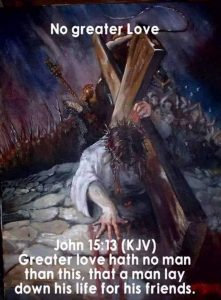
Bible Study: The Unknown Known (4/17/2021) Saturday
Overall theme: Through faith in Christ , sinful humans can know the one true God.
Key Bible Passage: Acts 17:22-34
22 Then Paul stood in the midst of Mars’ hill, and said, Ye men of Athens, I perceive that in all things ye are too superstitious. 23 For as I passed by, and beheld your devotions, I found an altar with this inscription, TO THE UNKNOWN GOD. Whom therefore ye ignorantly worship, him declare I unto you. 24 God that made the world and all things therein, seeing that he is Lord of heaven and earth, dwelleth not in temples made with hands;25 Neither is worshipped with men’s hands, as though he needed any thing, seeing he giveth to all life, and breath, and all things;26 And hath made of one blood all nations of men for to dwell on all the face of the earth, and hath determined the times before appointed, and the bounds of their habitation; 27 That they should seek the Lord, if haply they might feel after him, and find him, though he be not far from every one of us: 28 For in him we live, and move, and have our being; as certain also of your own poets have said, For we are also his offspring. 29 Forasmuch then as we are the offspring of God, we ought not to think that the Godhead is like unto gold, or silver, or stone, graven by art and man’s device.30 And the times of this ignorance God winked at; but now commandeth all men every where to repent: 31 Because he hath appointed a day, in the which he will judge the world in righteousness by that man whom he hath ordained; whereof he hath given assurance unto all men, in that he hath raised him from the dead. 32 And when they heard of the resurrection of the dead, some mocked: and others said, We will hear thee again of this matter. 33 So Paul departed from among them.34 Howbeit certain men clave unto him, and believed: among the which was Dionysius the Areopagite, and a woman named Damaris, and others with them.
Question #1: What kind of questions do people face that cause them to search for answers? What sources might someone consult to find answers to these questions?
Question #2: As we read Paul’s sermon in Acts 17:22-31, identify his main points. How does each point build to the next point to get to his conclusion (vv30-31)?
I. Unknown God (Acts 17:22-23)
22 Then Paul stood in the midst of Mars’ hill, and said, Ye men of Athens, I perceive that in all things ye are too superstitious. 23 For as I passed by, and beheld your devotions, I found an altar with this inscription, TO THE UNKNOWN GOD. Whom therefore ye ignorantly worship, him declare I unto you.
Question #3: What misconceptions do people have about life and deities? How could those misconceptions be used to initiate a conversation about the Gospel?
II. The Known Creator (Acts 17:24-29)
24 God that made the world and all things therein, seeing that he is Lord of heaven and earth, dwelleth not in temples made with hands;25 Neither is worshipped with men’s hands, as though he needed any thing, seeing he giveth to all life, and breath, and all things;26 And hath made of one blood all nations of men for to dwell on all the face of the earth, and hath determined the times before appointed, and the bounds of their habitation; 27 That they should seek the Lord, if haply they might feel after him, and find him, though he be not far from every one of us: 28 For in him we live, and move, and have our being; as certain also of your own poets have said, For we are also his offspring. 29 Forasmuch then as we are the offspring of God, we ought not to think that the Godhead is like unto gold, or silver, or stone, graven by art and man’s device.
Question #4: What misconceptions about God does Paul address in this passage? How are those same misconceptions expressed today?
III. Judgment By The Son (Acts 17:30-31)
30 And the times of this ignorance God winked at; but now commandeth all men every where to repent: 31 Because he hath appointed a day, in the which he will judge the world in righteousness by that man whom he hath ordained; whereof he hath given assurance unto all men, in that he hath raised him from the dead.
Question #5; In what ways is God’s requirement for repentance fair to everyone? How does Jesus’ being raised from the dead qualify Him to judge everyone?
IV. Split Decision (Acts 17: 32-34)
32 And when they heard of the resurrection of the dead, some mocked: and others said, We will hear thee again of this matter. 33 So Paul departed from among them.34 Howbeit certain men clave unto him, and believed: among the which was Dionysius the Areopagite, and a woman named Damaris, and others with them.
Question #6: Identify the different responses of the people who heard Paul in Athens. What other ways might a person respond to hearing the gospel for the first time?
Take Home Message of the Bible Study:
1.People are searching for the truth, looking for meaning.
2.God makes Himself known so that we can know and worship Him.
3.No one is exempt from God’s judgment?
4.While people may respond in a variety of ways, believers must continue to share the truth of the gospel.
End of Bible Study Questions:
1, Who do you know that is religious but not a follower of Christ? Identify insights from today’s study that could be used to share the gospel with that person. How can you do this in a loving way?
2.Reflect on Acts 17:20. How does this verse serve as motivation to share the gospel with others? I encourage us to memorize this verse.
3. How would you categorize your response the first time you heard the gospel? What caused you to consider or reconsider the truth of the gospel message? How does reviewing your own journey help you understand the response of others to the gospel?

Bible Study: A Changed Family (4/10/2021) Saturday
Overall Theme: God uses our influence to lead others to Him.
Key Bible Passage: Acts 16:22-34
22 And the multitude rose up together against them: and the magistrates rent off their clothes, and commanded to beat them.23 And when they had laid many stripes upon them, they cast them into prison, charging the jailor to keep them safely:24 Who, having received such a charge, thrust them into the inner prison, and made their feet fast in the stocks.25 And at midnight Paul and Silas prayed, and sang praises unto God: and the prisoners heard them.26 And suddenly there was a great earthquake, so that the foundations of the prison were shaken: and immediately all the doors were opened, and every one’s bands were loosed.27 And the keeper of the prison awaking out of his sleep, and seeing the prison doors open, he drew out his sword, and would have killed himself, supposing that the prisoners had been fled.28 But Paul cried with a loud voice, saying, Do thyself no harm: for we are all here.29 Then he called for a light, and sprang in, and came trembling, and fell down before Paul and Silas,30 And brought them out, and said, Sirs, what must I do to be saved?31 And they said, Believe on the Lord Jesus Christ, and thou shalt be saved, and thy house.32 And they spake unto him the word of the Lord, and to all that were in his house.33 And he took them the same hour of the night, and washed their stripes; and was baptized, he and all his, straightway.34 And when he had brought them into his house, he set meat before them, and rejoiced, believing in God with all his house.
Question #1: What is the best news you have ever shared with your family? What was their response?
Question#2: As we are going through this study tonight, I would ask that we take time in reflecting how Acts 16:22-34 would have play out in our lives if we experience this level of persecutions?
I. The Situation (Acts 16:22-24)
22 And the multitude rose up together against them: and the magistrates rent off their clothes, and commanded to beat them.23 And when they had laid many stripes upon them, they cast them into prison, charging the jailor to keep them safely:24 Who, having received such a charge, thrust them into the inner prison, and made their feet fast in the stocks.
Question # 3: Why do we think some people respond so strongly against the gospel message and its messengers?
II. The Opportunity (Acts 16:25-28)
25 And at midnight Paul and Silas prayed, and sang praises unto God: and the prisoners heard them.26 And suddenly there was a great earthquake, so that the foundations of the prison were shaken: and immediately all the doors were opened, and every one’s bands were loosed.27 And the keeper of the prison awaking out of his sleep, and seeing the prison doors open, he drew out his sword, and would have killed himself, supposing that the prisoners had been fled.28 But Paul cried with a loud voice, saying, Do thyself no harm: for we are all here.
Question #4: How did Paul and Silas’s actions demonstrates their confidence in God?
Question #5: How would you describe their impact on the others in prison?
III. The Conversion (Acts 16:29-32)
29 Then he called for a light, and sprang in, and came trembling, and fell down before Paul and Silas,30 And brought them out, and said, Sirs, what must I do to be saved?31 And they said, Believe on the Lord Jesus Christ, and thou shalt be saved, and thy house.32 And they spake unto him the word of the Lord, and to all that were in his house.
Question #6: What does the presence of the jailer’s family reveal about his attitude toward them?
Question #7: How do we see the same attitudes demonstrated today?
IV. The Transformation (Acts 16:33-34)
33 And he took them the same hour of the night, and washed their stripes; and was baptized, he and all his, straightway.34 And when he had brought them into his house, he set meat before them, and rejoiced, believing in God with all his house.
Question # 8: What things did God accomplish through Paul and Silas’s imprisonment?
Question #9: How does that impact the way we react to tough times in our own life?
Take Home Messages:
1. Believers can praise God when persecuted and ridiculed, knowing that God uses their responses as a testimony to others.
2. Believers must share Jesus with other family members.
3. Salvation through Jesus leads to demonstration of faith that are observable by others.
End of Bible Study Questions:
1. Memorize Acts 16:31. With whom in one’s family can you share this verse in the next seven days? Record how one would plan on sharing this verse with them.
2. On a scale of 1 to 10, with 1 being very little and 10 being very much, how would we rate the change that Jesus made and continues to make in our lives. How do we show others that Jesus makes us different?
Bible Study: Crucified ( 4/3/2021) Saturday
Overall theme: Jesus willingly sacrificed His life to pay the price for all of humanity’s sin.
Key Bible Passage: Matthew 27:41-52
41 In the same way the chief priests, the teachers of the law and the elders mocked him. 42 “He saved others,” they said, “but he can’t save himself! He’s the king of Israel! Let him come down now from the cross, and we will believe in him. 43 He trusts in God. Let God rescue him now if he wants him, for he said, ‘I am the Son of God.’ ” 44 In the same way the rebels who were crucified with him also heaped insults on him. 45 From noon until three in the afternoon darkness came over all the land. 46 About three in the afternoon Jesus cried out in a loud voice, “Eli, Eli, lemasabachthani?” (which means “My God, my God, why have you forsaken me?”). 47 When some of those standing there heard this, they said, “He’s calling Elijah.” 48 Immediately one of them ran and got a sponge. He filled it with wine vinegar, put it on a staff, and offered it to Jesus to drink. 49 The rest said, “Now leave him alone. Let’s see if Elijah comes to save him.” 50 And when Jesus had cried out again in a loud voice, he gave up his spirit. 51 At that moment the curtain of the temple was torn in two from top to bottom. The earth shook, the rocks split 52 and the tombs broke open. The bodies of many holy people who had died were raised to life.
Question #1 : Highlighting words and phrases that emphasize what Jesus endured on the cross. What do these events reveal about the death of Jesus?
Question # 2: Notice the events that place immediately after Jesus’ death. What do these events reveal about the death of Jesus?
Question #3: How do we respond to others who serve our community and country? How does their willingness to serve in this way affect the way we feel about them?
I. Mocked (Matthew 27:41-44)
41 In the same way the chief priests, the teachers of the law and the elders mocked him. 42 “He saved others,” they said, “but he can’t save himself! He’s the king of Israel! Let him come down now from the cross, and we will believe in him. 43 He trusts in God. Let God rescue him now if he wants him, for he said, ‘I am the Son of God.’ ” 44 In the same way the rebels who were crucified with him also heaped insults on him.
Question #4: What different types of pain and suffering did Jesus face? Of these types of pain, which do we think weighed the most? Explain.
II. Forsaken (Matthew 27:45-49)
45 From noon until three in the afternoon darkness came over all the land. 46 About three in the afternoon Jesus cried out in a loud voice, “Eli, Eli, lemasabachthani?” (which means “My God, my God, why have you forsaken me?”). 47 When some of those standing there heard this, they said, “He’s calling Elijah.” 48 Immediately one of them ran and got a sponge. He filled it with wine vinegar, put it on a staff, and offered it to Jesus to drink. 49 The rest said, “Now leave him alone. Let’s see if Elijah comes to save him.”
Question #5: What do the three hours of darkness teach us about the nature of sin and the magnitude of its consequences? How is the darkness of sin expressed today?
III. Sacrificed (Matthew 27:50-52)
50 And when Jesus had cried out again in a loud voice, he gave up his spirit. 51 At that moment the curtain of the temple was torn in two from top to bottom. The earth shook, the rocks split 52 and the tombs broke open. The bodies of many holy people who had died were raised to life.
Question #6: What conclusions can be drawn from what happened immediately after Jesus died? How does the impact of what happened continue to be experienced today?
Take Home Message:
1.All of creation, knowingly and unknowingly, testifies to Jesus’ being the Messiah.
2.Sin causes separation from the holy God.
3.Jesus’ death removed the chasm between God and sinful humanity, making it possible for humans to have an eternal relationship with God through faith in Jesus.
End of Bible Study Question
1. List ways of testifying that Jesus is the Messiah and include actions that can be taken individuals or in group. And of these actions listed, which ones do you need to incorporate into your life.
2.Take time to reflect on your life when you were separated from God. What image from the crucifixion best illustrates your life at that time? What actions should you take as a result of remembering what it is like to be separated from God?
3.Consider the changes that have happened in your life as a result of Jesus’ crucifixion and your trust in Him. How has He changed your heart and character? What steps do you need to take to continue to develop your relationship with God?

Bible Study Title: Strengthened (3/27/2021) Saturday
Overall theme: God strengthens His church through His faithful servants.
Key Bible Passage: Acts 15:36-41; 16:1-5
Acts 15:36-41 36And some days after Paul said unto Barnabas, Let us go again and visit our brethren in every city where we have preached the word of the LORD, and see how they do. 37And Barnabas determined to take with them John, whose surname was Mark. 38But Paul thought not good to take him with them, who departed from them from Pamphylia, and went not with them to the work. 39And the contention was so sharp between them, that they departed asunder one from the other: and so Barnabas took Mark, and sailed unto Cyprus; 40And Paul chose Silas, and departed, being recommended by the brethren unto the grace of God. 41And he went through Syria and Cilicia, confirming the churches.
Acts 16:1-5 1Then came he to Derbe and Lystra: and, behold, a certain disciple was there, named Timotheus, the son of a certain woman, which was a Jewess, and believed; but his father was a Greek: 2Which was well reported of by the brethren that were at Lystra and Iconium. 3Him would Paul have to go forth with him; and took and circumcised him because of the Jews which were in those quarters: for they knew all that his father was a Greek. 4And as they went through the cities, they delivered them the decrees for to keep, that were ordained of the apostles and elders which were at Jerusalem. 5And so were the churches established in the faith, and increased in number daily.
Question #1: How do you respond to the idea that God invites people to be a part of His work? In what ways does this excite and scare people at the same time?
Question #2: Read Acts 15:36-16:5 in your Bible. Outline the result associated each action identified in these verses. How are results connected? Could the final result identified in 16:5 have happened without each previous action?
I. Parting Ways (Acts 15:36-39)
36And some days after Paul said unto Barnabas, Let us go again and visit our brethren in every city where we have preached the word of the LORD, and see how they do. 37And Barnabas determined to take with them John, whose surname was Mark. 38But Paul thought not good to take him with them, who departed from them from Pamphylia, and went not with them to the work. 39And the contention was so sharp between them, that they departed asunder one from the other: and so Barnabas took Mark, and sailed unto Cyprus;
Question #3: What did Paul and Barnabas understand about God’s call and purpose in their lives.
Question #4: How did that understanding impact their decision to part ways?
II. A New Team (ACTS 15:40-16:3)
40And Paul chose Silas, and departed, being recommended by the brethren unto the grace of God. 41And he went through Syria and Cilicia, confirming the churches.
1Then came he to Derbe and Lystra: and, behold, a certain disciple was there, named Timotheus, the son of a certain woman, which was a Jewess, and believed; but his father was a Greek: 2Which was well reported of by the brethren that were at Lystra and Iconium. 3Him would Paul have to go forth with him; and took and circumcised him because of the Jews which were in those quarters: for they knew all that his father was a Greek.
Question #5: Why was it important for Paul to assemble a team that would work well with him?
Question #6: How did the background of each man make him an asset to the team?
III. Growth Seen (Acts 16:4-5)
4And as they went through the cities, they delivered them the decrees for to keep, that were ordained of the apostles and elders which were at Jerusalem. 5And so were the churches established in the faith, and increased in number daily.
Question #7: What is the relationship between evangelism and discipleship?
Question #8: Can you have one without the other? Explain. What kind of balance should be struck between evangelism and discipleship in your life?
Take Home Messages from this Bible Study:
1.Being faithful to God’s purpose in our lives plays a role in our decision-making process and personal growth.
2.Believers must look for other faithful believers with whom they can partner to fulfill God’s mission.
3.Believers should be involved in both sharing of the gospel and encouraging spiritual growth in others.
End of Bible Study Questions:
1.How would you describe your calling and life purpose? Ask God to help you put your life purpose in writing. What are you doing that reflects your God-given purpose?
2. With whom can you partner to more effectively be involved in kingdom work? What actions do you need to take to foster that partnership?
3.Evaluate your involvement in evangelism and discipling other believers. In which one of these two activities are you more invested? What actions will you take to be more involved in evangelism and discipleship?
Bible Study Title: Available To All (3/13/2021) Saturday
Overall theme : Salvation is available to everyone through faith in Jesus alone.
Key Biblical Passage: Acts 15:6-11; 24-31
6 And the apostles and elders came together for to consider of this matter. 7 And when there had been much disputing, Peter rose up, and said unto them, Men and brethren, ye know how that a good while ago God made choice among us, that the Gentiles by my mouth should hear the word of the gospel, and believe. 8 And God, which knoweth the hearts, bare them witness, giving them the Holy Ghost, even as he did unto us; 9 And put no difference between us and them, purifying their hearts by faith. 10 Now therefore why tempt ye God, to put a yoke upon the neck of the disciples, which neither our fathers nor we were able to bear? 11 But we believe that through the grace of the Lord Jesus Christ we shall be saved, even as they.
24. Forasmuch as we have heard, that certain which went out from us have troubled you with words, subverting your souls, saying, Ye must be circumcised, and keep the law: to whom we gave no such commandment: 25. It seemed good unto us, being assembled with one accord, to send chosen men unto you with our beloved Barnabas and Paul,26. Men that have hazarded their lives for the name of our Lord Jesus Christ.27. We have sent therefore Judas and Silas, who shall also tell you the same things bymouth.28. For it seemed good to the Holy Ghost, and to us, to lay upon you no greater burden than these necessary things;29. That ye abstain from meats offered to idols, and from blood, and from things strangled, and from fornication: from which if ye keep yourselves, ye shall do well. Fare ye well.30. So when they were dismissed, they came to Antioch: and when they had gathered the multitude together, they delivered the epistle:31. Which when they had read, they rejoiced for the consolation.
Question #1: What beliefs are non-negotiable? How can a person decide which issues are secondary and which are non-negotiable.
Question #2: As we read through Acts 15:6-11, 24-31, I want to encourage brothers and sisters to look for words and phrases that reveal the nature of Salvation. Summarize what these words and phrases reveal about salvation.
I. No Distinction (Acts 15:6-11)
6 And the apostles and elders came together for to consider of this matter. 7 And when there had been much disputing, Peter rose up, and said unto them, Men and brethren, ye know how that a good while ago God made choice among us, that the Gentiles by my mouth should hear the word of the gospel, and believe. 8 And God, which knoweth the hearts, bare them witness, giving them the Holy Ghost, even as he did unto us; 9 And put no difference between us and them, purifying their hearts by faith. 10 Now therefore why tempt ye God, to put a yoke upon the neck of the disciples, which neither our fathers nor we were able to bear? 11 But we believe that through the grace of the Lord Jesus Christ we shall be saved, even as they.
Question #3: What unbiblical stipulations are placed on people today before being accepted into a local church?
Question #4: How do those stipulations compare to what was being faced by the early church?
II. Clear Expectations (Acts 15:24-29)
24. Forasmuch as we have heard, that certain which went out from us have troubled you with words, subverting your souls, saying, Ye must be circumcised, and keep the law: to whom we gave no such commandment: 25. It seemed good unto us, being assembled with one accord, to send chosen men unto you with our beloved Barnabas and Paul,26. Men that have hazarded their lives for the name of our Lord Jesus Christ.27. We have sent therefore Judas and Silas, who shall also tell you the same things bymouth.28. For it seemed good to the Holy Ghost, and to us, to lay upon you no greater burden than these necessary things;29. That ye abstain from meats offered to idols, and from blood, and from things strangled, and from fornication: from which if ye keep yourselves, ye shall do well. Fare ye well.
Question #5: What standards should a church use when communicating appropriate ways of living out the Christian life today?
III. Secure Encouragement (Acts 15:30-31)
30. So when they were dismissed, they came to Antioch: and when they had gathered the multitude together, they delivered the epistle:31. Which when they had read, they rejoiced for the consolation.
Question # 6: What kinds of spiritual questions are being asked in the church today?
Question #7: How can the way a church handles conflict and potentially divisive spiritual questions be an encouragement to a community?
Take Home Messages from this Bible Study:
1.Believers can take joy in the fact that salvation is available to all who place their faith in Jesus.
2.Believers are to demonstrate their trust in Jesus in word and deed.
3.Believers can encourage others who are seeking answer to spiritual questions.
End of Bible Study Questions:
1.Review Acts 15:9. Ask God to reveal sinful distinctions you may make of other people. Confess any distinctions He reveals and begin to pray for the salvation of people you may know who are in the groups God reveals.
2.Who in your life needs the salvation that is offered to them? What can you share with them from this study that might encourage them? Make an appointment to visit with them.
3.Discuss how conflict is handled within your group. Identify lessons learned from this study about addressing conflict or maintaining unity in the church. What principles should your group or church follow in the future?
Bible Study Title: Misguided Worship
Overall theme: Only God is worthy of worship and praise.
Acts 14:8-20
8.And there sat a certain man at Lystra, impotent in his feet, being a cripple from his mother’s womb, who never had walked: 9. The same heard Paul speak: who steadfastly beholding him, and perceiving that he had faith to be healed, 10. Said with a loud voice, Stand upright on thy feet. And he leaped and walked. 11. And when the people saw what Paul had done, they lifted up their voices, saying in the speech of Lycaonia. The gods are come down to us in the likeness of men. 12. And they called Barnabas, Jupiter; and Paul, Mercurius, because he was the chief speaker. 13. Then the priest of Jupiter, which was before their city, brought oxen and garlands unto the gates, and would have done sacrifice with the people. 14. Which when the apostles, Barnabas and Paul, heard of, they rent their clothes, and ran in among the people, crying out, 15. And saying, Sirs, why do ye there things? We also are men of like passions with you, and preach unto you that ye should turn form these vanities unto the living God, which mad heaven and earth, and the sea, and all things that are therein. 16. Who in times past suffered all nations to walk in their own ways. 17. Nevertheless he left not himself without witness, in that he did good, and gave us rain from heaven, and fruitful seasons, filling our hearts with food and gladness. 18. And with these saying scarce restrained they the people, that they had not done sacrifice unto them. 19. And there came thither certain Jews from Antioch and Iconium, who persuaded the peopl, and, having stoned Paul, drew him out of the city, supposing he had been dead. 20. Howbeit, as the disciples stood round about him, he rose up, and came into the city: and the next day he departed with Barnabas to Derbe.
Question #1: How would you describe most people’s attitudes toward worship? For what reasons do people attend a church worship service?
Question #2: Reading Acts 14:8-20 in your Bible. What do their reactions reveal about humanity’s need and desire to worship?
I. Healing (Acts 14:8-10)
8.And there sat a certain man at Lystra, impotent in his feet, being a cripple from his mother’s womb, who never had walked: 9. The same heard Paul speak: who steadfastly beholding him, and perceiving that he had faith to be healed, 10. Said with a loud voice, Stand upright on thy feet. And he leaped and walked.
Question #3: How does God use people today to accomplish His work? How does that compare to how He used Paul in this pasage?
II. Reaction (Acts 14:11-13)
1. And when the people saw what Paul had done, they lifted up their voices, saying in the speech of Lycaonia. The gods are come down to us in the likeness of men. 12. And they called Barnabas, Jupiter; and Paul, Mercurius, because he was the chief speaker. 13. Then the priest of Jupiter, which was before their city, brought oxen and garlands unto the gates, and would have done sacrifice with the people.
Question #4; What are some ways people misunderstand or misinterpret God’s work today? Why do some people incorrectly attribute God’s work to other people or circumstances?
III. Redirected (Acts 14:14-18)
14. Which when the apostles, Barnabas and Paul, heard of, they rent their clothes, and ran in among the people, crying out, 15. And saying, Sirs, why do ye there things? We also are men of like passions with you, and preach unto you that ye should turn form these vanities unto the living God, which mad heaven and earth, and the sea, and all things that are therein. 16. Who in times past suffered all nations to walk in their own ways. 17. Nevertheless he left not himself without witness, in that he did good, and gave us rain from heaven, and fruitful seasons, filling our hearts with food and gladness. 18. And with these saying scarce restrained they the people, that they had not done sacrifice unto them.
Question #5: What were the potential dangers if Paul and Barnabas had accepted the praise from the people?
Question #6: What attitudes did Paul and Barnabas display in pointing the people to Jesus ?
IV. Rejected (Acts 14:19-20)
19. And there came thither certain Jews from Antioch and Iconium, who persuaded the peopl, and, having stoned Paul, drew him out of the city, supposing he had been dead. 20. Howbeit, as the disciples stood round about him, he rose up, and came into the city: and the next day he departed with Barnabas to Derbe.
Question #6: To what lengths might a person go to discredit or silence the gospel message?
Question #7: What can we learn from Paul’s response that might help us deal with efforts to discredit or quiet the gospel message today?
Take Home Message:
1.God uses believers as instruments of His grace and mercy.
2.Unbelievers sometimes misinterpret the work of God in and around them.
3.Believers who have been used by God as an instrument of His work must clearly point to Christ, giving Him all credit.
End of Bible Study Questions:
1.List ways we can help unbelievers and skeptics identify God’s work in the world and then put them in action ?
2.Compare our attitudes toward worship with the attitudes listed at the beginning of this Bible Study. Identify attitudes we need to change in light of what we have discovered in today’s study. What steps do we need to take to do so?
3.Focus on Acts 14:15. Identify ways we can help others turn to the living God. How can we be more intentional in sharing the gospel with others?
Bible Study Title: The Gospel Message (2/27/2021)
Overall theme of the Bible Study: Christ’s death and resurrection are central to the gospel message.
Acts 13:26-39
26.Men and brethren, children of the stock of Abraham, and whosoever among you feareth God, to you is the word of this salvation sent. 27. For they that dwell at Jerusalem, and their rulers, because they knew him not, nor yet the voices of the prophets which are read every sabbath day, they have fulfilled them in condemning him. 28. And though they found no cause of death in him, yet desired they Pilate that he should be slain. 29. And when they fulfilled all that was written of him, they took him down from the tree, and laid him in a sepulchre. 30. But God raised him from the dead: 31. And he was seen many days of them which came up with him from Galilee to Jerusalem, who are his witnesses unto the people. 32. And we declare unto you glad tidings, how that the promise which was made unto the fathers, 33. God hath fulfilled the same unto us their children, in that he hath raised up Jesus again; as it is also written in the second psalm, Thou art my Son, this day have I begotten thee. 34. And as concerning that he raised him up from the dead, now no more to return to corruption, he said on this wise, I will give you the sure mercies of David. 35.Wherefore he saith also in another psalm, Thou shalt not suffer thine Holy One to see corruption. 36. For David, after he had served his own generation by the will of God, fell on sleep, and was laid unto his fathers, and saw corruption. 37. But he, whom God raised again, saw no corruption. 38. Be it known unto you therefore, men and brethren, that through this man is preached unto you the forgiveness of sins; 39. And by him all that believe are justified from all things, from which ye could not be justified by the law of Moses.
Question #1: If you were meeting new neighbors, what questions would you ask them? If they asked you about your religious beliefs, what would you tell them?
Question #2: Read Acts 13:26-29 in your Bible. Note the different ways Paul pointed to the death, burial, and resurrection of Jesus. What does his focus on Jesus’ death and resurrection indicate about the importance of that event?
I. Crucified (Acts 13:26-29)
26.Men and brethren, children of the stock of Abraham, and whosoever among you feareth God, to you is the word of this salvation sent. 27. For they that dwell at Jerusalem, and their rulers, because they knew him not, nor yet the voices of the prophets which are read every sabbath day, they have fulfilled them in condemning him. 28. And though they found no cause of death in him, yet desired they Pilate that he should be slain. 29. And when they fulfilled all that was written of him, they took him down from the tree, and laid him in a sepulchre.
Question #3: What do the actions of the people of Jerusalem teach us about humanity and our need for a Savior?
Question #4: How do people reject Jesus today despite knowing that He died for them?
II. Resurrected (Acts 13:30-37)
30. But God raised him from the dead: 31. And he was seen many days of them which came up with him from Galilee to Jerusalem, who are his witnesses unto the people. 32. And we declare unto you glad tidings, how that the promise which was made unto the fathers, 33. God hath fulfilled the same unto us their children, in that he hath raised up Jesus again; as it is also written in the second psalm, Thou art my Son, this day have I begotten thee. 34. And as concerning that he raised him up from the dead, now no more to return to corruption, he said on this wise, I will give you the sure mercies of David. 35.Wherefore he saith also in another psalm, Thou shalt not suffer thine Holy One to see corruption. 36. For David, after he had served his own generation by the will of God, fell on sleep, and was laid unto his fathers, and saw corruption. 37. But he, whom God raised again, saw no corruption.
Question #5: Why do you think it was important for Paul to point both to eyewitnesses and to the Scriptures to explain the importance of Jesus’ resurrection?
Question #6: How do these work together to give us confidence in the resurrection today?
III. Proclaimed (Acts 13:38-39)
38. Be it known unto you therefore, men and brethren, that through this man is preached unto you the forgiveness of sins; 39. And by him all that believe are justified from all things, from which ye could not be justified by the law of Moses.
Question #7: What would you say to a person who claims there are multiple ways to God and His heaven?
Take Home Message:
1. In the face of our rebellion, Jesus willfully paid the penalty for our sins by His death.
2. We can have confidence that Jesus is resurrected, living eternally.
3.Faith in Jesus is the only means of salvation.
End of the Bible Study Questions:
1.Brainstorm different ways people try to justify themselves and their sin. Then look for ways Paul’s speech at Antioch Pisidia gives an answer to those efforts. With whom can you talk this week using insights gained from this Bible Study.
2. Reflect on Acts 13:30 and how that verse applies to you. Consider how this verse impacts your daily life and your future life. Memorize this verse and look for a way to interject it into at least on conversation this week.
Bible Study Title: Extraordinary (2/20/2021)
Overall Theme: Sharing the gospel message leads to experiences in which God demonstrates His power in extraordinary ways.
Acts 12:7-12; 16-19
Acts 12:7-12 7And, behold, the angel of the LORD came upon him, and a light shined in the prison: and he smote Peter on the side, and raised him up, saying, Arise up quickly. And his chains fell off from his hands. 8And the angel said unto him, Gird thyself, and bind on thy sandals. And so he did. And he saith unto him, Cast thy garment about thee, and follow me. 9And he went out, and followed him; and wist not that it was true which was done by the angel; but thought he saw a vision. 10When they were past the first and the second ward, they came unto the iron gate that leadeth unto the city; which opened to them of his own accord: and they went out, and passed on through one street; and forthwith the angel departed from him. 11And when Peter was come to himself, he said, Now I know of a surety, that the LORD hath sent his angel, and hath delivered me out of the hand of Herod, and from all the expectation of the people of the Jews. 12And when he had considered the thing, he came to the house of Mary the mother of John, whose surname was Mark; where many were gathered together praying.
Acts 12:16-19 16But Peter continued knocking: and when they had opened the door, and saw him, they were astonished. 17But he, beckoning unto them with the hand to hold their peace, declared unto them how the LORD had brought him out of the prison. And he said, Go shew these things unto James, and to the brethren. And he departed, and went into another place. 18Now as soon as it was day, there was no small stir among the soldiers, what was become of Peter. 19And when Herod had sought for him, and found him not, he examined the keepers, and commanded that they should be put to death. And he went down from Judaea to Caesarea, and there abode.
Question #1: Notice the directions given by the angel to Peter. What do these directions reveal about Peter’s state of mind and alertness?
Question #2: Highlight words or phrases that point to the impact of Peter’s release. How did this impact the faith of the difference people involved?
Question #3: Do you believe that persecution of a group more often disheartens members of that group or emboldens them? Explain.
I. Deliverance (Acts 12:7-10)
7And, behold, the angel of the LORD came upon him, and a light shined in the prison: and he smote Peter on the side, and raised him up, saying, Arise up quickly. And his chains fell off from his hands. 8And the angel said unto him, Gird thyself, and bind on thy sandals. And so he did. And he saith unto him, Cast thy garment about thee, and follow me. 9And he went out, and followed him; and wist not that it was true which was done by the angel; but thought he saw a vision. 10When they were past the first and the second ward, they came unto the iron gate that leadeth unto the city; which opened to them of his own accord: and they went out, and passed on through one street; and forthwith the angel departed from him.
Question #4: What does it say to you about Peter’s faith that he slept so soundly on the night before his scheduled execution?
II. Delight (Acts 12:11-12)
11And when Peter was come to himself, he said, Now I know of a surety, that the LORD hath sent his angel, and hath delivered me out of the hand of Herod, and from all the expectation of the people of the Jews. 12And when he had considered the thing, he came to the house of Mary the mother of John, whose surname was Mark; where many were gathered together praying.
III. Determined (Acts 12:16-17)
16But Peter continued knocking: and when they had opened the door, and saw him, they were astonished. 17But he, beckoning unto them with the hand to hold their peace, declared unto them how the LORD had brought him out of the prison. And he said, Go shew these things unto James, and to the brethren. And he departed, and went into another place.
Question #5: What makes people skeptical of God working in an unexpected way? How does seeing the outcome of a miracle move us away from our skepticism?
IV. Disturbance (Acts 12:18-19)
18Now as soon as it was day, there was no small stir among the soldiers, what was become of Peter. 19And when Herod had sought for him, and found him not, he examined the keepers, and commanded that they should be put to death. And he went down from Judaea to Caesarea, and there abode.
Question #6: How does Peter’s miraculous deliverance illustrate the relationship betwee



